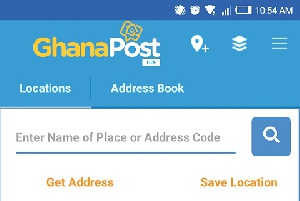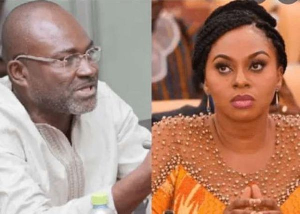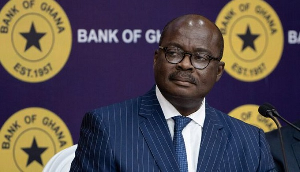The newly launched digital addressing system has been greatly discussed and analysed in the media, albeit from an IT perspective. As a professional Surveyor who also works with Geographic Information Systems (GIS), GPS applications, and maps, which are all related to the backend development of the GhanaPostGPS app, I deem it fit to share my technical perspective to this public discourse.
Before any analyses of the GhanaPostGPS app, I want to recall this emphatic declaration by the Vice President of Ghana, His Excellency Dr. Mahamadu Bawumia: “Ghana’s new digital addressing system will be far more advanced than that of the US and other developed countries”.
It is important to note that the “GPS” in the app name is an abbreviation which means Global Positioning System. GPS (US) like other navigation systems i.e. Compass (China), GLONASS (Russia), Galileo (Europe) etc. were developed by the specific countries for special purposes.
GPS, for example, was developed by the US for military applications and was not until the year 2000 that it was approved/opened for civilian use. How then do you create an app which is entirely dependent on a platform you have no control over and claim it to be more advanced than the owners and controllers of the platform on which it’s based.
Recall also the accusations and counter-accusations between the Vice President and the former President on the newly created digital address system.
The former president may be right in questioning the cost of the app, but classifying it as a free Google maps app which already existed on mobile devices is not entirely correct. Like many have already explained, the Google map is a navigational app. It offers no digital addresses specifying Ghanaian districts and regional codes as can be accessed in the GhanaPostGPS app. It is also relevant to note that though the Google maps service is free on our individual devices, commercial users have to obtain licenses and pay premiums based on the number of subscribers to their apps which are embedded with Google map services. This, therefore, explains the $400,000 annual payment by the government of Ghana to Google.
I will now consider some key areas in assessing the GhanaPostGPS app.
Cost:
Android, IOS app development in 2017 is no rocket science. I believe the IT experts have shared enough views on the possible cost of developing the GhanaPostGPS app. My comments will, therefore, focus on the backend app development rather than the frontend. By backend, I mean the algorithms and data inputs that help to generate the digital addresses. As explained by the app developers, the app is based on regional and district boundaries of Ghana. These were “superimposed” or “overlayed” with a 5m*5m grid for the whole country.
My explanation/description of the algorithm used: Each 5m*5m grid (box) is given a unique code/address based on the district and region it is located. By accessing the GPS/others receivers embedded in our devices, receiving lat/long coordinates, locating the position of a device within the generated grid, a user/device/phone is assigned the unique code/address of its closest grid. This explains user experiences of multiple addresses within the same room. Such a situation could simply occur where a user finds him/herself on the boundary of the two or more grids/boxes. Writing these algorithms and automating them for the whole country is again no rocket science but a few programming lines. The final components of the backend development are the district and regional boundaries data which were obtained from the Lands Commission as confirmed by the app developers and the Vice President. We can thus assume that these data came at no cost or highly subsidised cost to the developers since government, in this case, is the client.
Another aspect of cost worth mentioning is the cost for servers on which the app is hosted.
In light of these considerations and taking into account the technical component of the app development, I can conclude that the $2.5million paid for the app development is on a higher side unless at least 4/5 years of google subscription is inclusive.
Efficiency:
Many IT experts have identified several loopholes in the app which I believe the developers are working fervently to patch/rectify in subsequent updates. I present my perspective:
• Dependency on GPS/other platforms: For an app developed for a national addressing system and given the significance placed on it by the government of Ghana, it is quite disturbing that the system is entirely dependent on platforms manned and controlled by other countries. It is true that GPS is used globally for different purposes, but many of its applications usually incorporate internal checks to ensure credibility and reliability of the system. The work of Surveyors and other professionals who employ GPS technology in Ghana are typical examples. Even in the absence of internal checks, navigational systems are usually complemented by accurate, current, comprehensive digital maps provided by the National Mapping Agency. Does the GhanaPostGPS app have internal mechanisms to check the accuracy of the lat/long coordinates on which the digital addresses are generated?
• Accuracy of the district and regional boundaries used: There are several regional, district and city maps in circulation but unfortunately, most of these maps were not derived from accurate demarcation/surveying of these boundaries as claimed by the app developers. It is for this reason that most MMDAs engage in boundary dispute on revenue collection. With these uncertainties, I foresee a situation where an individual living in district A, is served with an address code of district B or C.
• Is the Google deal worth it? Using Google maps in major cities like Accra and Kumasi is almost cosy. Everyone would be impressed with the experience. But a careful investigation at the Lands Commission would reveal photographs/images with similar accuracy/resolution/level of detail as that of Google maps. Pulling away further from the major cities into most districts and municipalities would, however, show a rather staggering opposite of the level of detail observed in the two major cities. If the app is developed for all Ghanaians, are people in Accra and Oseikofikrom guaranteed equal experience when using it?
• Navigation: The strength of any digital map related navigation system is dependent on the accuracy of the base map on which it is based/created. A brief browse through the navigational component (Google maps) of the app reveals a lot of deficiencies. Firstly, the base-map is outdated. The effect of this is that Google has not yet updated/incorporated the newly constructed road in your village. In addition, the road names in Google maps except for few areas in major cities are completely different from the road names evident on ground. This is very important because, in the absence of internal checks, it could serve a purpose of checking the accuracy of the generated digital address since the digital addresses are normally accompanied by the closest street name.
I can conclude based on the above considerations with regards to efficiency, that the app, developed for the purpose of national addressing, is deficient in its dependence on the GPS/others platforms. The navigational component (Google maps) also, though the country is committing $400,000 annually, is highly incomplete and outdated and therefore defeats the purpose of its inclusion for most areas in the country.
My take:
I was one of many Ghanaians who cheered at the many initiatives of the current government to digitalize our economy. I, also like many believe that the successful implementation of these policies would greatly improve governance, security and the livelihood of the good Citizens of Ghana. I, however, owe it as a patriot and concerned citizen to share my professional view and perspective with regards to the current implementation of the National Digital Addressing System (NDAS). I still believe this initiative was and is still laudable, but I respectfully do not agree with the cost and mode of implementation. These are my reasons:
I see this newly launched digital addressing system as a temporal patch. My reaction would have been different had Ghana Post been a private company acting in its private capacity. However, Ghana Post is NOT PRIVATE and thus the GhanaPostGPS app is unbefitting of the tag of a national digital address system. We cannot have a national asset of which we have no clear authority or jurisdiction with regards to its behaviour. The reason we find ourselves in this difficult position is because we have neglected a very important component of monitoring, managing, and planning developments in Ghana. I have heard the Vice President say on several occasions that the last time Ghana was mapped was in 1974.
Have we asked ourselves why we have neglected mapping for 43 years? Had we invested in the comprehensive mapping of the whole country, we could have easily generated digital addresses independent of platforms (GPS/others) we have no control over. Many countries and private entities have over the years taken advantage of GPS/others platforms to produce maps which are independent of these platforms. These maps provide a base for planning and aid in developing other map derivatives like tourist maps, guide maps, navigational maps etc. Why should the government invest in a navigational system that individuals can freely access? Had we invested in the comprehensive mapping of the whole country, Google maps could have easily incorporated this information into their app. Citizens can then access these services at no cost to government.
My investigations at the Lands Commission reveal that the last update of maps in Ghana was in 2013 under the Land Administration Project (Phase 2) and this covered less than 10% of the whole country. We should come to the realization that mapping is the sole responsibility of the state and that Google maps can in no way replace or substitute the forfeiture of state responsibility.
The issue of mapping has also crept into land administration in Ghana. I sat in awe as I watched the Land Wars documentary by Multimedia Journalist Latif Iddrisu on Joy News TV. It has been proven that, for an effective and efficient land administration, there is a need for accurate, current, and comprehensive maps of the lands under consideration. How do you manage a land without knowledge of its extent, shape, size, and owner? It is important therefore for government to go back to the drawing board, bring along interest groups and relevant stakeholders, and consider permanent solutions to the causes of this canker destabilising our country.
As the Vice President has reiterated on several occasions, we should not reinvent the wheel. Addressing systems have been developed and used in many parts of the world. It is evident from the different forms, that the countries that developed the GPS/others platforms do not depend entirely on these platforms for their national addressing systems. Physical addresses developed and controlled by a National Agency has been the model. This approach may be costly and time intensive in the short term but ensures security, credibility, and value for money in its application and use in the medium to long-term.
I write to therefore advise those in authority to take a second look at the developed addressing system and consider alternatives that would be more efficient, more befitting of our beloved country and provide comprehensive physical/digital addresses controlled and managed by a National Agency.
Opinions of Friday, 10 November 2017
Columnist: Nii Nana















